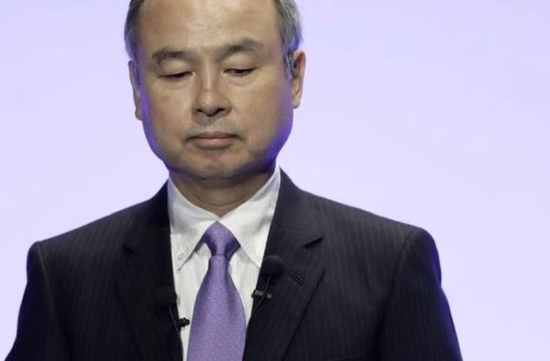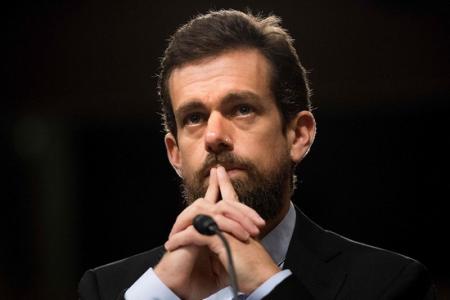your current location is:Home > investHomeinvest
The brain drain of SoftBank executives intensifies, and Masayoshi Son faces greater pressure
Son's SoftBank Group is losing more and more executives. At a time when SoftBank Group's prospects are cloudy, Son is also taking more responsibility on his shoulders.

Last week, media reports said that two more managing partners of SoftBank Vision Fund are leaving, namely Yanni Pipilis and Munish Varma. That means there have been at least 10 top-level departures at the world's largest investment fund since March 2020. Rajeev Misra, the longtime head of SoftBank's Vision Fund, has given up most of his titles and job responsibilities at the Vision Fund to set up his own investment fund. SoftBank Chief Operating Officer Marcelo Claure left earlier this year. Katsuki Sago, the chief strategy officer who served on SoftBank’s board with Misra and Claure, will resign in 2021.
That means Son is increasingly hands-on as he charts a new course for the company he founded 40 years ago. Masayoshi Son, 64, is shifting his focus from the Vision Fund to new opportunities, particularly British chip designer ARM, after suffering huge losses, according to people familiar with the matter. According to the sources, Son is planning to reposition the chip designer to cut costs and boost profits to boost its appeal. Son is preparing to push the company to go public next year.
Son has faced problems retaining top talent since he restructured the SoftBank telecommunications group into an investment holding company five years ago. When he set up the original $100 billion SoftBank Vision Fund in 2017, he refused to offer a profit share to partners with outperforming investments, like other venture capital firms. The Vision Fund's losses in recent years have exacerbated the problem, as there is little profit to attract the best investors. "Masayoshi Son gets all the credit, and the team behind him gets nothing," said David Gibson, senior research analyst at MST Financial Services.
So far, SoftBank Group declined to comment.
Since SoftBank repositioned itself from a telecoms company to the world's largest tech investor, all have received little credit. SoftBank has made missteps in investing in companies such as WeWork and Greensill, and the overall rout in technology stocks has also affected the shares of SoftBank's holdings of big companies such as Alibaba and Coupang.
According to investment data firm Preqin, as of March this year, the internal rate of return for limited partners in the first phase of the Vision Fund was 11%, well below the industry average of about 38%. The IRR for Vision Fund 2 is 0, compared to the industry average of 45%. "SoftBank has too much money, but not enough discipline," said Steven Kaplan, co-founder of the University of Chicago Booth School of Business Entrepreneur Program.
SoftBank is basically back where it started in 2017. The company's stock has returned an average of 5.2% over the past five years, well below the Nikkei 225's 9% gain and the Nasdaq's 16% gain. SoftBank is scheduled to report quarterly earnings on August 8. Bloomberg Intelligence analysts Marvin Lo and Chris Muckensturm said SoftBank could post another loss after posting a 210 million yen deficit last quarter.
SoftBank recently raised as much as $22 billion in cash by selling prepaid forward contracts for Alibaba shares, documents show. SoftBank has been using such derivatives to bolster its cash reserves since at least 2016. However, the amount raised is higher than the $13.17 billion SoftBank reported in its May earnings report.
Globally, Japanese corporate executives are not well paid, but the stars of the Japanese financial industry are still the highest paid group in the world. Venture capital firms typically distribute 20% of profits to partners, which means tens of millions of dollars per partner. Son's own salary in the most recent fiscal year was 100 million yen, equivalent to only $733,000. Misra's salary of $8.4 million in the most recent fiscal year is one of the highest paid corporate executives in Japan, but still well below the most successful venture capitalists.
SoftBank's board members have warned that the company isn't doing enough to compete for talent.
Chen Liwu, founder of venture capital firm Walden International, resigned as an outside board member of SoftBank in June. "The best venture capital firms have made little changes because they understand the importance of retaining good dealmakers," he wrote in his exit letter.
SoftBank's approach to executive compensation is not to raise explicit pay, but to provide executives with additional transaction funds to find opportunities to make money on their own, according to people familiar with the matter and information disclosed by the company. This includes making large loans to senior employees, which tend to have little negative impact on borrowers.
For example, SoftBank filings show Misra borrowed $463.5 million from SoftBank to invest in telecom firm T-Mobile US, which acquired SoftBank-owned Sprint in 2020. Claure also borrowed $515 million. They all make decent profits from their T-Mobile stakes. Misra repaid the loan in early 2022.
Much of this attitude comes from the top of SoftBank. Masayoshi Son personally holds a 33% stake in a SoftBank company that invests in high-risk technology stocks. But as investments soured, Son lost money. He also set aside a 17% stake in the second tranche of the Vision Fund as an incentive for executives, including himself.
The identified $1.5 billion Vision Fund incentive pool made its first payments to employees last year, but the money came too late to retain most of the fund's key employees, the sources said. The pay structure for Vision Fund 2 is finally tied to performance, but that won't be finalized until early 2022.
Other top SoftBank executives who have recently departed include two of the three managing partners at the Latin American fund, as well as Silicon Valley veteran Deep Nishar, who oversaw SoftBank's investments in Grofers, Improbable and Mapbox. Michel Combes, who took over as SoftBank Group's international head after Claure's departure, announced his departure just five months later. Son's longtime lieutenant, Ronald Fisher, has resigned as the leader of the Vision Fund's U.S. unit.
Amir Anvarzadeh of Asymmetric Advisors pointed out that the departure of these talents will make SoftBank's recovery more difficult, especially in the current challenging market environment. "The atmosphere isn't as good as you might think. Now, they're going to focus entirely on those catastrophic investments rather than picking new investment targets."
Son, who once likened meetings within SoftBank to a zoo, where he would be attacked by others, also attributed SoftBank's decision-making success to unruly debates. Yet few among SoftBank's senior staff or board of directors can truly challenge Son.
Outside board members, including Fast Retailing founder Masa Yanai and Nidec founder Shigenobu Nagamori, have left in recent years. Yanai Zheng and Yongshou Shigenobu have publicly opposed Sun Zhengyi's decision. The company's first female director, Yuko Kawamoto, resigned from SoftBank's board after clashing with Masayoshi Son over corporate governance issues last year.
Walden International's Chen Liwu also wrote in his departure letter that Son "still needs people to provide him with protection and advice to make him more successful. Making bad choices too quickly could have negative consequences for the company." ."
related articles
Article Comments (0)
- This article has not received comments yet, hurry up and grab the first frame~












